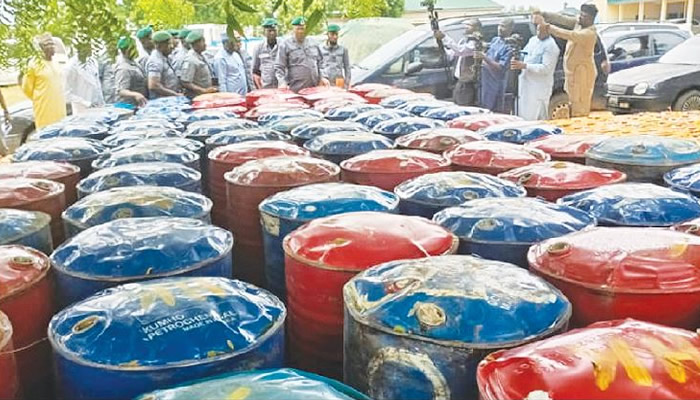Paragraph 1: Introduction of the "Renewed Hope Nigeria First" Policy and Initial Reactions
President Bola Tinubu’s administration introduced the "Renewed Hope Nigeria First" policy, mandating all federal ministries, departments, and agencies to prioritize Nigerian goods, services, and expertise in public procurement. This initiative, announced by Information Minister Mohammed Idris, aims to bolster local industries and stimulate economic growth. While the Organised Private Sector (OPS) largely lauded the policy as a positive step towards promoting local content and boosting domestic manufacturing, the Petroleum Products Retail Outlet Owners Association of Nigeria (PETROAN) expressed reservations, particularly regarding the potential impact on fuel importation and the downstream petroleum sector.
Paragraph 2: PETROAN’s Concerns and Cautious Optimism
PETROAN, while welcoming the policy’s intent, cautioned against a blanket ban on fuel importation, citing Nigeria’s still-developing local refining capacity. The association emphasized the importance of ensuring a consistent and affordable supply of petroleum products, given the country’s high daily consumption. They warned that a premature ban on fuel imports could lead to shortages, price hikes, and compromise energy security, negatively impacting the economy and citizens’ well-being. PETROAN advocated for increased investment in local refining infrastructure and support for domestic industries to enhance their competitiveness before implementing such a drastic measure.
Paragraph 3: OPS Support and Expected Benefits
The Manufacturers Association of Nigeria (MAN) enthusiastically embraced the policy, viewing it as a strong signal of the government’s commitment to supporting local industries. MAN believes the policy will stimulate demand, improve capacity utilization, attract investments, and create jobs. They project significant economic benefits, including a potential 56% GDP boost, a 37% reduction in unemployment, and a substantial increase in firms’ willingness to hire. MAN urged all stakeholders, including government bodies, private sector entities, and individuals, to actively support the initiative.
Paragraph 4: Addressing Monopoly Concerns in the Downstream Sector
The Centre for Promotion of Private Enterprise (CPPE) also commended the policy while dismissing concerns about a potential monopoly in the downstream petroleum sector, particularly regarding the Dangote Refinery. CPPE Director Dr. Muda Yusuf argued that the policy focuses on government procurement and does not directly restrict petroleum product imports. He challenged downstream players to enhance local refining capacity, including maximizing the output of NNPC-operated refineries, to compete effectively. Yusuf highlighted the inherent differences in the operating environment, costs, and regulations between imported and locally refined fuel, suggesting that true competition arises between local producers.
Paragraph 5: Balancing Protectionism and Consumer Welfare
Dr. Yusuf advocated for a nuanced approach to trade policy, suggesting moderate protectionist measures to support local manufacturers without resorting to extremes. He emphasized the need to strike a balance between promoting domestic industries and ensuring consumer access to goods at competitive prices. Dr. Femi Egbesola, National President of the Association of Small Business Owners of Nigeria, acknowledged the potential threat to existing market players but stressed the importance of robust domestic production and a competitive market to prevent monopolies and price inflation. He emphasized the need for careful sequencing and a transparent regulatory environment to ensure the policy’s success.
Paragraph 6: Political Support and Long-Term Implications
Senator Ali Ndume lauded President Tinubu’s decision, highlighting its potential to promote indigenous entrepreneurship, boost the local economy, and generate employment. He believes the policy will protect local producers from being overwhelmed by foreign competition, stimulate GDP growth, and strengthen the Naira by reducing pressure on foreign reserves. Ndume also suggested imposing heavy taxes on certain imported goods to encourage consumption of locally produced alternatives. The "Renewed Hope Nigeria First" policy represents a significant shift in economic strategy, with potential long-term implications for Nigeria’s industrial development, trade relations, and overall economic performance. The success of this policy hinges on careful implementation, addressing potential challenges related to production capacity, market competition, and consumer welfare.














